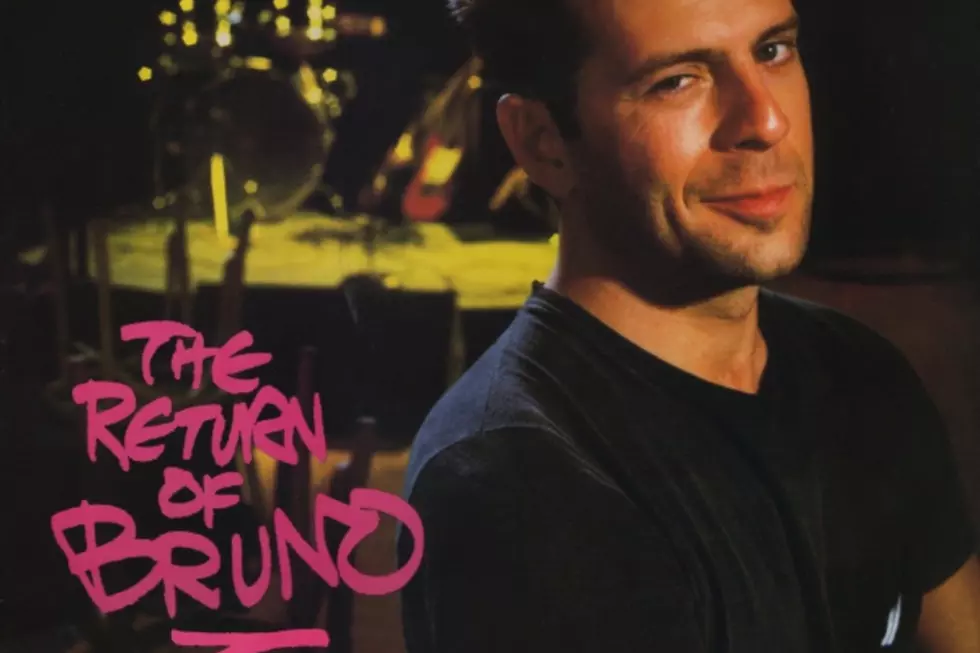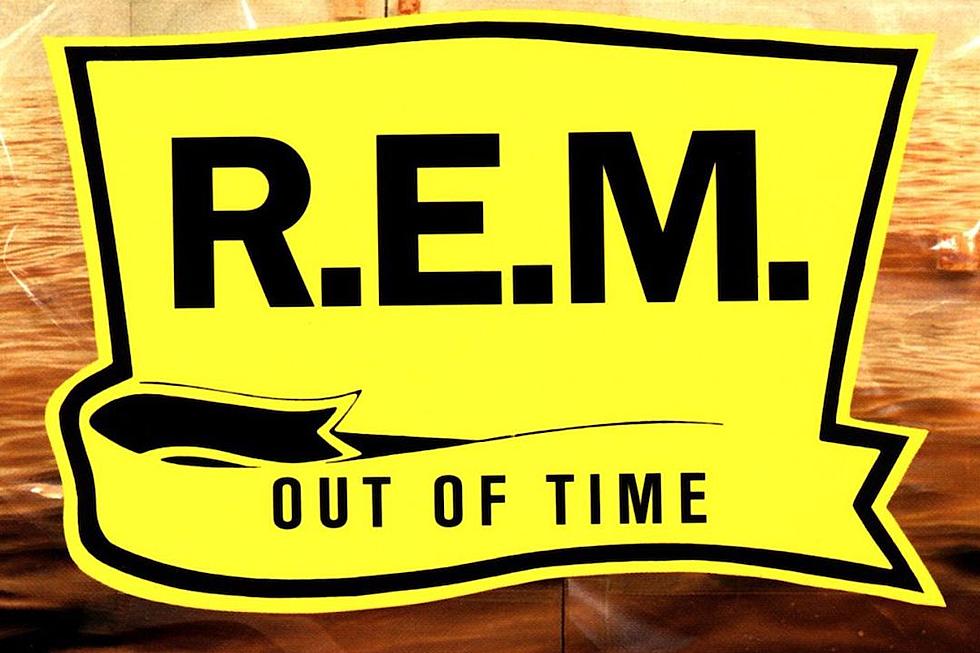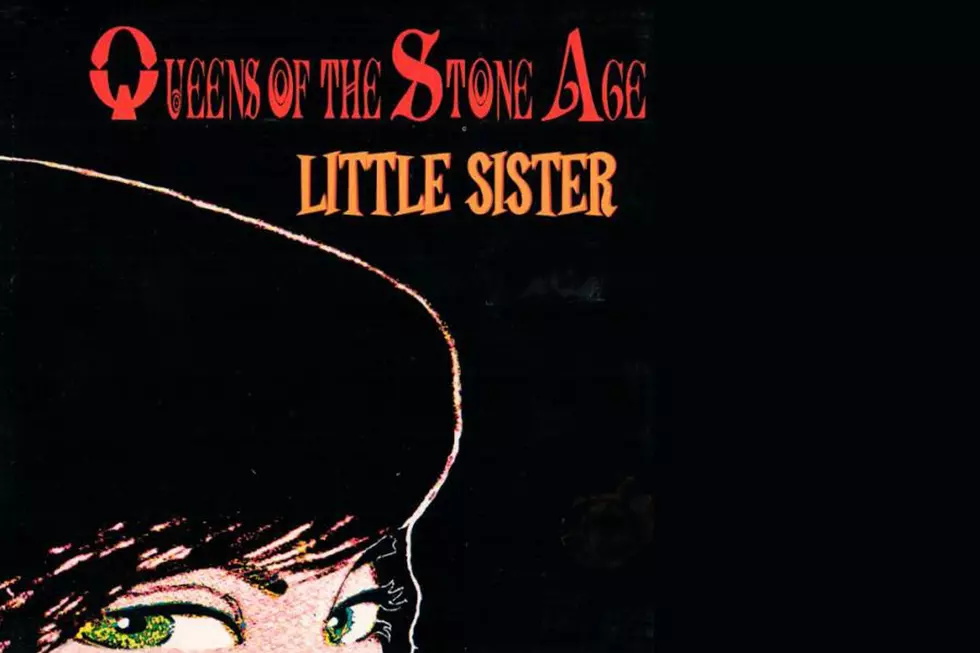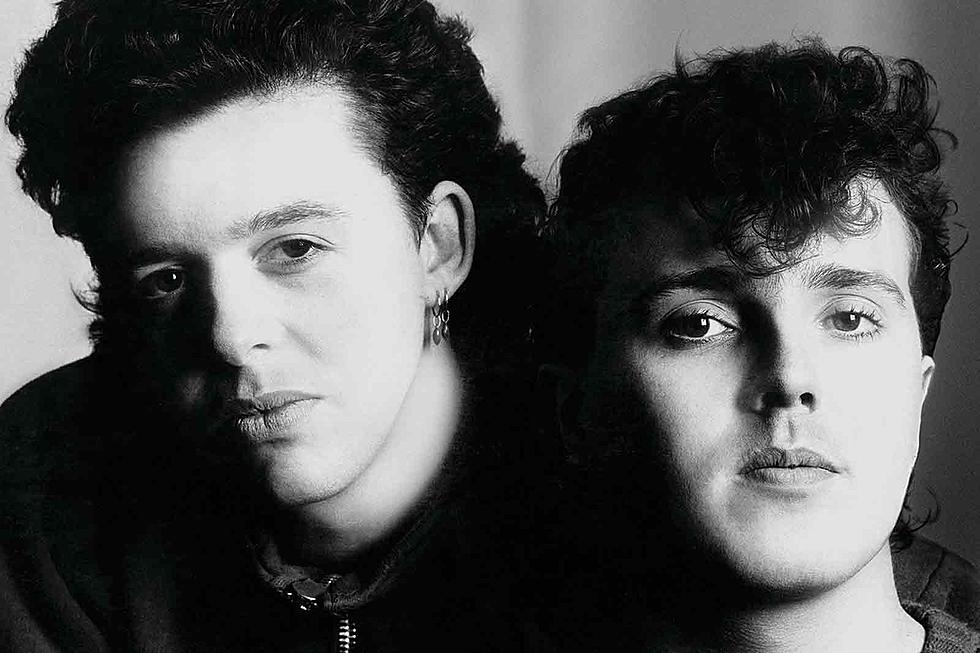
25 Years Ago: Bruce Willis Tries His Hand at Singing With ‘The Return of Bruno’
Bruce Willis' rise to superstardom got off to something of a slow start, but by the time he achieved household name status through his co-starring role on the hit ABC series Moonlighting, he quickly started making up for lost time.
Moonlighting quickly propelled Willis and his screen partner Cybill Shepherd to the public eye after its premiere in March of 1985, and by the time it concluded its second season in the spring of the following year, it was one of the hottest shows on TV — and a springboard to other projects for both of its stars. Willis proved particularly eager to test his wings, booking a series of film projects (including the Blake Edwards comedy Blind Date and the period mystery Sunset) and inking a deal to hawk Seagram's wine coolers with a series of omnipresent commercials.
In the midst of all this, Willis also sought the opportunity to branch out musically. A fairly adept harmonica player and passable blues belter, he'd showcased his singing a handful of times on Moonlighting — most notably during the episode that included his rendition of "Good Lovin'" in the midst of a wildly anachronistic retelling of The Taming of the Shrew. In other words, it came as little surprise when word got out he'd signed a record deal.
What did raise a few eyebrows was where Willis found his label home: Motown Records, the storied R&B imprint that had fallen on hard times as many of the bedrock artists who made up its incredible catalog (and earned the company its "Hitsville USA" nickname) aged out of the charts or departed for greener pastures. Although Willis' TV character had an obvious fondness for classic soul and R&B sides, that didn't qualify him to record for historic Motown...did it?
To answer that question, Willis hooked up with producer Robert Kraft, a songwriter and recording artist who'd put out a soft-rock album in the early '80s. If that seemed like an inauspicious beginning to a project many felt was already doomed to fail, Kraft quickly proved he understood how to assemble a high-profile vanity project, rounding up a lengthy list of session ringers and famous guest stars to buttress Willis' vocals — and help add a little credibility by association.
The end result was The Return of Bruno, which arrived in stores Jan. 20, 1987, alongside an HBO special that acted as a mock biopic for Willis' singing alter ego, Bruno Radolini. Kraft's glossy production didn't really have much to do with the classic Motown sound -- in his defense, that's just what albums sounded like in 1987. But it was also apparent even after a cursory listen that he'd needed to use a few handfuls of studio fairy dust to distract from Willis' vocals.
That being said, amidst all the synths and digital reverb, The Return of Bruno was obviously made from a fan's earnest perspective. While it would be hard to argue Willis truly did them justice, he surrounded his sole co-write and a couple of new songs from outside writers with covers of an eclectic array of classic hits and deep cuts that ranged from the obvious ("Under the Boardwalk," featuring backing vocals from the Temptations; "Respect Yourself," featuring a vocal assist from the Pointer Sisters) to the surprising ("Down in Hollywood," originally recorded by Ry Cooder; Joe Cocker's Allen Toussaint-penned "Fun Time").
A listener could also hardly find fault with the personnel. With Kraft at the helm, the 10-song set featured ubiquitous '80s liner notes mainstays like Dann Huff and Alan Pasqua as well as respected artists in their own right such as the Temptations, the Pointer Sisters, and Billy Preston. It all added up to an album that, while hardly transcendent and occasionally downright corny, was rarely less than proficient — a sort of spiritual cousin to the Blues Brothers that also managed to honor its influences, albeit in a less compelling way.
In early 1987, The Return of Bruno's flaws weren't anywhere near enough to keep the album from rating a curiosity listen by a sizable portion of the record-buying public — including radio program directors, who quickly added the album's leadoff single, "Respect Yourself," and turned it into a Top Five hit. The album followed suit, peaking at No. 14 on the Billboard Top 200 — leading to a handful of 1987 tour dates and making Willis a certified multimedia star.
Of course, one hit record doesn't make a career — as the glut of singing actors who scored hit singles alongside Willis in the '80s could all soon attest. Along with peers like Don Johnson, Eddie Murphy, and Jack Wagner, Willis found it difficult to recapture the momentum he'd enjoyed with his first hit; subsequent singles from The Return of Bruno failed to gain the traction he'd had with "Respect Yourself," and his musical output was quickly eclipsed by a filmography that soon included the first of many blockbusters in 1988's Die Hard.
All of which was more or less to be expected — but still sort of a shame, because Willis' second album, 1989's If It Don't Kill You, It Just Makes You Stronger, was everything its predecessor should have been. Working with a stronger set of vocal pipes and a single small combo led by guitarist Robben Ford, Willis returned to the blues and R&B classics he loved, with far more satisfying results. Alas, by this time, the record-buying public had moved on, and soon, so did Willis: although he's continued to perform here and there, and even started a short-lived label, Uptop Music, around the turn of the century, he hasn't released another album since.
"No, over, retired," he insisted when asked by The Scotsman if he'd ever considered making another LP. "I never really called myself a singer. The closest I got was that I used to shout in key."
Actors Who Sing
More From Diffuser.fm









